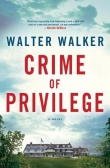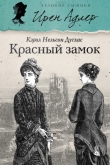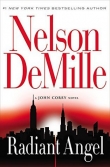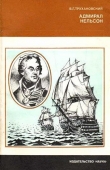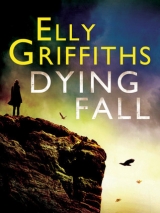
Текст книги "Dying Fall"
Автор книги: Elly Griffiths
Соавторы: Elly Griffiths
Жанр:
Триллеры
сообщить о нарушении
Текущая страница: 8 (всего у книги 20 страниц)
CHAPTER 14
The forensics laboratory is in an industrial estate near Blackpool airport. It’s a curiously desolate place, a dead end in more ways than one. Ruth drives round and round, trying to find CNN Forensics; all the buildings look the same, square and featureless, and there are very few sign-posts. Such signs as there are bristle with unfriendly acronyms: DDR Office Furniture, AJM Industrial Fencing, RRB Surgical Appliances. The roads loop round and back again, going nowhere, like a child’s railway track. Eventually, more by luck than judgement, Ruth spots Clayton Henry’s sports car parked outside a long, low building that looks as if it is made out of corrugated iron. CNN Forensics reads the tiny metal sign, pale grey on white. Clearly they are not expecting passing trade.
Clayton Henry gets out of his car and comes to meet her. Gone is the genial host in his Hawaiian shirt. Today he is soberly dressed in a dark suit and looks distinctly uncomfortable, glancing around the empty car-park as if he is expecting to be tracked by the FBI. Ruth thanks him for the party and he acknowledges this with a weak smile.
‘This place is a bit out of the way,’ she says, as they approach the (locked) doors.
‘Yes but they’re very good. The police use them a lot for forensic science services.’
‘But why did Dan use them? I mean, this isn’t a police case, is it?’
‘No.’ Clayton fiddles nervously with his phone. ‘But we wanted to make sure the bones were safe.’
Safe from what? thinks Ruth. But she doesn’t say any more. They press a bell and are admitted.
Inside, the place is spotless; sterile blue and gleaming white. The receptionist, also in antiseptic white, asks them to check in their bags and change into protective clothing.
Clayton is holding what Nelson would probably describe as a handbag, a discreet document case in mulberry leather. He hands it over reluctantly with a quip about it containing explosives. The receptionist smiles coldly. Ruth passes her organiser handbag without comment. If any terrorist finds what he’s looking for in under half an hour, he’s doing better than she ever does.
‘Thank you,’ says the receptionist. She hands them two sets of disposable coveralls. ‘You can change in there.’ She points to a discreet room marked ‘Changing’.
‘Is it unisex?’ asks Clayton.
‘Yes.’
Ruth hates coveralls. She thinks they make her look like a barrage balloon. Add a hairnet and you’ve got instant Ena Sharples. They are given two pairs of gloves each, one long and blue, which pull up over the coat cuffs, the other short and flesh-coloured.
‘It’s a bit excessive, isn’t it?’ says Ruth.
Clayton shrugs. In his paper suit he looks oddly like an ageing toddler. ‘I suppose they’ve got a lot of sensitive stuff here. One spot of DNA in the wrong place …’
‘I suppose so.’ Ruth doesn’t like the idea of all Lancashire’s unsolved murders being pinned on her. She pulls the gloves higher and puts on her face mask. Thus attired, they waddle out into the reception area.
A man is waiting for them. He pulls down his mask to say, ‘I’m Terry Durkin, forensic analyst. You’re from the university?’
‘Yes.’ Clayton introduces himself and Ruth.
‘This way please.’
Afterwards, Ruth’s main memory is of swing doors. Door after door, swishing silently as they pass. What was that Bowie song about memory being a swinging door? Dan would have known. The corridors seem endless, blue light and grey carpets. Eventually they reach a row of lifts.
‘It’s on the third floor.’
Ruth hates lifts. This one judders painfully between floors, making her worry that she and Clayton together have exceeded the weight limit. What a way to go. Too fat for a lift. When they reach the third floor, she practically jumps out onto the landing, leaving Clayton and Terry Durkin to fend for themselves.
Durkin ushers them into a small room where a numbered container sits on a metal table.
‘The bones are in there.’
‘Who logged them in?’
‘I did,’ says Durkin. ‘I was on duty that day.’
‘Who brought them in?’
‘It was Guy. Guy Delaware.’
Interesting, thinks Ruth. Does this support Guy’s claim to be closely involved on the project or was he just running Dan’s errands? ‘Do you know what happened to the samples that were taken away for testing?’ she asks.
‘When were they taken?’
Ruth looks at Clayton. ‘At the dig,’ he confirms.
‘I only know what happens in this building,’ intones Durkin. ‘Nothing enters or leaves this building without us knowing.’
‘We’d better not leave anything behind then,’ laughs Clayton.
‘Oh, you’ll leave something behind,’ says Durkin, unsmiling. ‘A hair, a trace of sweat, some fibres. We’ll have your DNA somewhere, you can be sure of that.’
Once again, it strikes Ruth that this is a very high-tech place to store archaeological finds. She asks Clayton if there was any suggestion that the bones were, in fact, modern.
‘No,’ says Clayton. ‘None at all. After all, they were buried inside a sarcophagus. We could date the tomb fairly accurately.’
‘Then why not keep them at the university?’
Clayton looks uncomfortable. He doesn’t meet Ruth’s eye as he says, ‘As I mentioned, there was some bad feeling about the dig.’
‘Why?’
‘Oh …’ Clayton seems suddenly completely preoccupied in adjusting his plastic gloves. ‘Waste of resources. That sort of thing.’
‘Bad feeling towards Dan?’ Ruth persists.
Clayton looks up, his plump face shocked. ‘No! Dan didn’t have an enemy in the world.’
That’s not what the police think, though. Ruth remembers her conversation with Nelson. The police think that someone killed Dan. That that someone may well be at Pendle University and may well be the same someone who is sending Ruth texts, warning her to stay away from these very bones. Well – she squares her shoulders as she takes the box from Durkin – she can’t be scared that easily. Well she can, but that’s not the point. The point is that she’s here despite being scared. She starts to lay the bones out on the examination table.
She starts to arrange the skeleton in correct anatomical order, looking for any distinguishing marks – disease, malnutrition, trauma – anything that would help her create a picture of the person who died so many years ago. At first sight the bones look to be those of an adult male, which is a relief, whatever Clayton says. They also look old, which may not mean anything. Recent skeletons are usually fairly obvious but it’s often not easy to distinguish between a body that died fifty years ago and one that has lain in the earth for hundreds of years. So many factors can affect the preservation of bones.
Clayton Henry watches her closely but does not attempt to help. After all, this isn’t his area of expertise. Durkin also stands respectfully in the background. The room is cold; it is obviously kept at a mortuary-like temperature.
Ruth starts by examining the skull, observing the pronounced nuchal crest which confirms that the skeleton is male. Then she looks at the teeth. Teeth are a forensic archaeologist’s best friend. They show signs of age, nutrition and diet. Horizontal ridges can indicate periods of arrested development such as illness or malnutrition. Teeth also carry an indelible record of the time and place when the adult teeth first erupted. Bones renew themselves; teeth do not.
Ruth looks at the upper jaw for a long time, then she picks up the lower jaw, which has become detached. This she examines for so long that Clayton Henry starts to shift from foot to foot.
‘Found anything interesting, Ruth?’
Ruth beckons him over. ‘See the teeth in the upper jaw? They’re really ground down.’
Clayton peers over. ‘Yes. Shows our bloke must have been a good age. Or else he was just a worrier.’ He laughs heartily.
‘But look at the lower jaw.’
‘What?’
‘The teeth aren’t ground down nearly as much.’
‘How can that be? Wouldn’t they grind against each other?’
‘Exactly,’ says Ruth.
‘What do you mean?’
Ruth puts the two halves of the jaw side by side on the table. ‘They don’t fit,’ she says. ‘These are from two different heads.’
*
‘I don’t understand,’ says Clayton Henry for the umpteenth time. They are sitting in a cafe next to a derelict funfair. It’s the nearest place they could find. You couldn’t imagine anyone actually choosing the cafe for anything other than convenience. The owner looks as if she lost all hope in about 1953 and the air is fuggy with chip oil and steam. Clayton, in his dark suit, looks as out of place as a food inspector. He looks sadly into his tea, which is grey with a sort of beige scum on top.
Ruth sips her coffee, which oddly also tastes of chips. ‘There are two explanations,’ she says. ‘Either there were parts of two skeletons in the sarcophagus, laid out so as to look like one body, or some of Dan’s bones were switched, either at the dig or at the lab.’
Clayton shakes his head. ‘Dan would have noticed if there were parts of two different skeletons,’ he says. ‘I mean, he wasn’t a bones expert but he would have noticed the teeth. He looked at the skull for a long time, trying to age the bones. He would have noticed.’
‘Yes,’ says Ruth. ‘He would have.’ She thinks of Dan, the star of the UCL archaeology department, and feels suddenly very angry that anyone could have considered playing such an obvious trick on him.
‘Let’s think about it,’ she says. She scrabbles in her organiser handbag for notebook and pencil. Ruth likes lists; it is something she has in common with DCI Harry Nelson. ‘Who was at the dig on the day that the bones were excavated? I assume it was done over one day?’
‘Yes. Dan was very particular about that. Every bone had to be recorded.’
‘Where are those records now?’
Clayton shrugs helplessly. ‘I don’t know.’
On Dan’s laptop, Ruth supposes, along with his notes and the novel. But there may be hard copies somewhere in the department. She resolves to look.
‘You’re sure he took the samples for testing at the dig?’ she asks.
‘Yes, I saw him take soil samples and he also put aside some teeth and small bones to be sent off for analysis. He bagged them up and put them in his car, I think.’
So the test samples will actually have be taken from the original skeleton, thinks Ruth.
‘What about photographs?’ she asks. ‘He would have photographed the skeleton when it was fully exposed, before excavation.’
‘There were official photos,’ says Clayton. ‘Taken by the county archaeologist, I think. And Dan took pictures on his phone.’
Bloody Dan, thinks Ruth. Why did he have to be so high tech? She takes photographs on digs with a digital camera but she also always does a sketch in her notebook and takes copious notes. And notebooks, unlike mobile phones, tend not to go missing. She says as much to Clayton.
‘Oh, I love technology,’ he says unexpectedly. ‘I’m a real gadget boy, just got the new iPhone 4.’
Ruth stops him before he can get into one of those iPhone conversations that their owners think are so fascinating. ‘So,’ she says, getting out her (low tech) notebook. ‘Who was there that day?’
Clayton crumples up his face in thought, looking more like a peevish baby than ever. ‘Some people from the local archaeology society,’ he says. ‘I could get their names for you. Susan Chow, the county archaeologist. I was there, and a couple of other people from the department.’
‘Who?’
Clayton takes a sip of tea, grimaces and pushes the cup away. ‘Guy was there, I think. Yes, Elaine and Guy. They were very interested in the excavation.’
‘Did you actually see Dan box up the bones?’
‘Yes. We were going to take them to the university but Guy thought …’
He stops.
‘What?’ asks Ruth. ‘What did Guy think?’
‘He thought they would be safer at the lab so he drove them there himself.’
*
When Ruth gets back to Lytham, Beach Row is deserted apart from a blonde woman walking her dog. Cathbad is out with Kate. He has left a message saying that they wanted to see the lifeboat museum, for all the world as if Kate has expressed a keen interest in marine rescue. Still, Ruth is grateful that Cathbad is prepared do so much babysitting. What’s more, he seems to enjoy it. All in all, living with Cathbad is not as difficult as she feared. Ruth hasn’t lived with anyone since Peter. Max’s weekends don’t really count, though by Sunday Ruth often catches herself looking forward to being on her own again, free to have Flint in bed with her or to watch TV in her pyjamas. But Cathbad is different. He’s not a boyfriend so she doesn’t really care how he sees her. Also, for someone who claims to be outside the normal rules of human behaviour, he’s surprisingly domesticated. He gets up early, goes for a dawn walk and then is back in time to make Ruth a cup of tea and watch breakfast TV with Kate. For the first time since Kate’s birth, Ruth is actually able to have a lie-in. And, if instead of dozing peacefully, she lies in bed worrying about Nelson, Max, Dan and mysterious text messages, then that’s her own fault, isn’t it?
Now Ruth puts some shopping down on the round kitchen table. It’s one o’clock and she wonders whether Cathbad and Kate will already have had their lunch. Should she make a salad, just in case? Put on some potatoes to bake? She is trying to take her turn with the cooking but Cathbad is so much better at it than she is. Last night he made a wonderful vegetarian lasagne and, when she opens the fridge, she sees that another delicious dish is already in there, neatly covered in clingfilm. Really, Cathbad would make someone a wonderful husband.
As the house is quiet, she decides to do a bit of work. She opens her laptop and clicks on her inbox. She has sent messages to a few labs that she knows, hoping that Dan might have used them for his isotopic analysis. Maybe one of them will have answered. But there are only two new emails: one from Max enclosing a jokey picture of his dog, Claudia, in a hard hat and one from a company called University Pals. Where has she seen that name before? She clicks onto the message. ‘Hi Ruth! Your friends from University College London, Archaeology 89 miss you. Why not get back in touch? Just click on the link below.’
Ruth looks at the email with its cheery message of emotional blackmail. Why does it give her a slightly uneasy feeling? Because she first heard from this company the day after she heard of Dan’s death? Because it brings back memories, not only of Dan, but of Caz, Val and Roly, the friends who were once central to her life but have now, somehow, become lost to her? She is going to see Caz tomorrow. Maybe that will help put things in perspective. They can talk about Dan, maybe find a way in which they can resurrect their old friendship or, better still, forge a new one. Ruth bets that Caz would never join a site calling itself ‘University Pals’.
She is so deep in the past that when her phone rings she assumes it must be Caz. But it’s Max.
‘Hi, Ruth. How’s it going?’
‘Hi, Max.’ She starts to relax. Max sounds so cheerful and normal that she’s suddenly incredibly grateful to him for not being a shadowy figure from her past or a sinister one from her present. Besides, she wants to tell him about Dan’s discovery.
Max is fascinated, as she knew he would be.
‘I’ve never seen a temple dedicated to a raven god but the Romans were good at this, taking a local religious cult and making it their own. It’s one of the ways they assimilated. Sometimes they even combined a Roman and a native God, Minerva and Sulis, for example, in Bath. How old is your temple?’
‘Dan thought mid to late fifth century.’
‘Interesting.’ Ruth can hear a genuine note of excitement in his voice. ‘The Romans banned ancient religions in 391 AD and Christianity became the established religion. But, of course, by 410 AD they’d left. There must have been plenty of belief in the old religions left. And, of course, the further north you go, the less Roman people were. Up there, you’re near the very outposts of the empire. They might have had Roman roads and Roman engineering but they were still natives at heart.’
‘What about the inscription? Could it really be King Arthur?’
‘Depends who King Arthur was,’ says Max, echoing Clayton Henry. ‘But certainly some historians think he was a Romano-British figure. Also the raven link could fit. There’s a tradition of Britishness about ravens; think of the legend that if the ravens leave the Tower of London, Britain will fall. Your Roman chap could be using the raven as a symbol of British unity against the Picts, the Celts and the Saxons.’
Rex Arthurus, thinks Ruth. Britannorum Rex. King Arthur. King of the Britons. Aloud, she says, ‘There’s a legend that Arthur’s spirit left his body in the form of a raven.’
‘There you are then. It all fits. Have you seen the bones?’
Ruth explains about the two sets of bones. ‘My guess is that the original skeleton is missing and these other bones were put in its place.’
Max whistles. ‘But why?’ he says. ‘Why would anyone want to do that?’
‘I don’t know,’ says Ruth. ‘But I do know that someone wants to stop me looking at the bones, Arthur’s bones. I don’t know why or even who’s behind it. There’s lots of weird stuff going on at the university.’
‘It sounds a bit serious,’ says Max. ‘Look, I can come up next week if you want. I could take a look at the bones, maybe scare off the bad guys.’
Ruth is silent for a moment, watching two seagulls fight over the crumbs Cathbad put out in the garden that morning. Why doesn’t she want Max to come to Lytham? Is it because she still doesn’t want to surrender Dan’s discovery to his expertise? Is it because he used the words ‘bad guys’ as if the whole thing is some silly children’s game? Or is it just because she doesn’t want to see him? Not enough, anyway.
‘Let’s talk about it nearer the time,’ she says at last. ‘I’d better go now. I think I can hear Kate and Cathbad coming back.’
CHAPTER 15
Caz lives in St Anne’s, the posh part of Lytham where the houses all look as if they are made out of Lego. It’s quite a long walk, but since Cathbad has taken the car to visit Pendragon Ruth has no choice but to stride out with Kate in her pushchair. When Cathbad first asked if he could have the car, Ruth had quite fancied the idea of a long, bracing walk, but when Tuesday morning dawned it was a grey blustery day with the promise of rain in the clouds.
‘Are you sure you don’t mind walking?’ asked Cathbad at breakfast. ‘What if it rains?’
‘It’ll be OK,’ said Ruth heartily. ‘Kate won’t shrink, will she?’
She didn’t want Cathbad to change his plans. She knew he was worried about Pendragon and, besides, she didn’t want to be the sort of pathetic woman who can’t walk for half an hour in the rain. Her own mother has never learnt to drive but Ruth remembers, as a child, accompanying her all over London, on buses and trains sometimes, but usually on foot. ‘Come on, Ruth,’ she’d say. ‘Best foot forward.’ Ruth used to wonder which was the favoured foot, as her mother never specified, but, it has to be said, in those days both feet worked pretty well.
Now, she checks that the rain cover is on the pushchair and sets out, intrepid in her yellow cagoule. It’s not quite the sophisticated image that she wanted to present to Caz but you can’t have everything. Cathbad has already driven off in the Renault. ‘I’ll be back this evening,’ he said. ‘I’m sure Pendragon is OK really. It’s just that he seemed worried, all that business with the gun …’
‘He’s got Thing to protect him,’ Ruth pointed out.
‘That dog’s as soft as they come,’ said Cathbad. ‘Still, I’m glad Pen’s got some company. He’s a funny bloke, a bit prone to black moods.’
He’s a druid, Ruth wanted to say, of course he’s odd. He wears white robes and leaves gifts out for a witch who died four hundred years ago. But she didn’t say any of this because, despite being a druid, Cathbad had unblocked the sink that morning. As she trudges along the coast road she thinks about the phrase ‘black moods’. Isn’t there another phrase, about having a black dog on your shoulder? A black dog sounds a bit like a witch’s familiar. She remembers Max once telling her that the Romans sacrificed black animals, particularly dogs, to Hecate, the goddess of witchcraft. Black birds too, she remembers, thinking of the Raven God and the birds’ bones found in the temple at Ribchester. Animals and birds are everywhere in language and mythology, something that probably started as soon as the first primitive man and dog decided to team up together. Cats too. As far back as the Egyptians, cats have been found buried with honour. Ruth thinks of her own familiar, her beloved Flint, now being looked after by Bob Woonunga, a man who believes that the world was created by a sacred rainbow snake. Maybe humans need animals to help them understand the world. Certainly it’s hard to see what else cats do for humans, aside from looking cute and killing the odd mouse. But then, thinks Ruth, pushing her untidy hair back inside her cagoule hood, looking cute has always had too high a value in society.
*
As soon as she sees Caz, Ruth realises that she needn’t have worried about looking good. She’s clearly out of her league. Caz’s whole lifestyle oozes sophistication and laid-back style, from the rambling Victorian house to her beautifully cut jeans and crisp white shirt, to the photogenic offspring seen scattered in photo frames around the house.
‘How old are your children?’ asks Ruth, hanging her wet cagoule on a curly coat stand (it started raining roughly five minutes into her walk).
‘Fifteen, twelve and eight,’ says Caz. ‘Pete’s taken them sailing but they’ll be back after lunch. Pete’s dying to catch up with you.’
Ruth and Kate follow Caz into a dauntingly perfect kitchen, all islands and French windows and retro chrome. There is even a sofa and a piano, displaying a Grade 5 scales book. Ruth feels sunk into inadequacy. Not only has Caz got a fifteen-year-old child (something chronologically possible but, to Ruth, almost miraculous) but she’s got children who play Grade 5 piano and go sailing. Sailing! Who on earth does that on a Tuesday morning?
‘How is Pete?’ she asks. Pete was also at UCL; he studied maths and played rugby. But, even so, he wasn’t a bad bloke.
‘Fine,’ says Caz. ‘Going bald, longing for retirement. Aren’t we all?’
Ruth doesn’t know how to answer that one. She never thinks about retirement, except as a far-off dream involving a lake in Norway. She’s only forty-two, and at this rate she’ll have to carry on working into her seventies to pay for Kate to go to university. Are there really people who retire in their forties?
Caz gets out a basket of toys for Kate and she plays happily on the floor. Caz crouches down next to her, helping her assemble a wooden rail track. The trains are battered and chipped, obviously much-loved family heirlooms.
‘Oh, you are lucky, Ruth,’ says Caz. ‘Having one this age. I’d give anything to go back.’
Ruth takes this with a pinch of salt, looking round Caz’s perfect kitchen. If she had a baby, the house and Caz herself would probably look a bit different. Ruth reckons that those jeans are a size eight.
Caz makes coffee in a professional-looking machine that takes up half her working surface. She gets out carrot cake and animal-shaped biscuits for Kate.
‘So, Ruth,’ she says, perching on a chrome stool that looks like something from Happy Days. ‘What are you doing these days? It seems like ages since I saw you.’
Ruth feels uncomfortable. She’s always acutely aware of how dull her life sounds to others. ‘Oh, not much,’ she says, watching Kate enact a high-speed rail crash. ‘Still working at the university. The head of department’s a bit of a pain but the students are lovely and I get to do a few digs.’
‘How do you manage with Kate?’ asks Caz. ‘Have you got a nanny?’
A nanny? She’s speaking a different language again. ‘No,’ says Ruth, ‘but I’ve got a child-minder. She’s very good. Very flexible.’
‘What about Kate’s father?’’ asks Caz. ‘Are you still with him?’
‘No,’ says Ruth. ‘We were never really together but he does see Kate.’
‘Who was that I spoke to on the phone?’ asks Caz. ‘He sounded nice.’ When Caz rang up to arrange this meeting she had, of course, got Cathbad, who had talked at length about the magical powers of sea air.
‘Cathbad. He’s just a friend.’
Caz looks at her curiously, head on one side, the sun catching the expensive highlights in her short hair. Is my life as alien to her as hers is to me, wonders Ruth. All the same, it’s lovely to see Caz again. Within minutes they are off down memory lane, reminiscing about Dan and university and the day that Roly dressed up as a nun for rag week.
‘Dear Roly,’ says Caz. ‘I haven’t seen him for ages, have you?’
‘No, just cards at Christmas,’ says Ruth. ‘He’s living in Edinburgh now.’
‘Still with Christian?’
‘I think so,’ says Ruth. ‘Do you think Roly knows about Dan?’
‘I don’t suppose so. Why?’
‘Oh, just that Dan mentioned him in the letter he wrote to me. He asked about you, Roly and Val.’
‘Well, that was our group at uni, wasn’t it? The four of us.’
Ruth thinks about the four of them – sardonic Caz, sweet Roly, easy-going Val, earnest Ruth – how is it possible that they have lost touch like this? But Roly is in Scotland and Caz and Val lost to the land of marriage and motherhood. And Dan, Dan who was always too cool for their group, is lost forever.
‘It’s so strange that he wrote to you,’ says Caz. ‘Just before he died.’
‘I know,’ says Ruth. She doesn’t mention her recurring nightmare that Dan is calling for her help, trapped in some nightmare hyperspace between life and death. She thinks of his answerphone message: I’ll get back to you. Promise. She tries to rid herself of the notion that Dan will, in some way, get back to her.
‘It’s been odd,’ she says. ‘Meeting his colleagues. Looking at his archaeology. I keep thinking that I’ll be able to discuss it all with him.’
‘What was the great discovery?’ asks Caz, who is now putting together a gourmet lunch with what looks like superhuman ease. On the floor, Kate slams her trains into each other. She’s as bad a driver as her father.
Ruth hesitates. She has told Caz only that the university wanted her to look at a discovery Dan had made. She considers telling Caz the whole story, about King Arthur, the Raven God, the awful suspicion that Dan was murdered. But then she thinks of the text messages, the fear in Clayton Henry’s face. It’s better for Caz if she doesn’t know.
‘It was a temple,’ she says. ‘On the outskirts of Ribchester.’
‘There’s lots of Roman stuff there,’ says Caz. ‘I took the kids to the museum once.’
‘Yes, it’s a well-known site,’ says Ruth, ‘but this temple’s interesting for a few reasons. It’s in the Roman style but Dan thought it was built after the Romans withdrew from Britain. And it’s dedicated to a god in the form of a raven.’
‘An unkindness of ravens,’ says Caz.
‘What?’
‘That’s the collective noun for ravens,’ says Caz, drizzling oil and shredding basil. ‘Like a murder of crows.’
‘Jesus,’ says Ruth. ‘What is it about these birds?’
‘I don’t like birds,’ says Caz. ‘I think I saw that Hitchcock film at an impressionable age. I don’t like the way they gather on the telegraph lines. It’s as if they’re waiting for something.’
‘I live near a bird sanctuary,’ says Ruth. ‘They’re very beautiful sometimes.’ She thinks about her ex-neighbour, David, who was the warden of the sanctuary. He loved the birds; it was just humans who were the problem.
‘How are you getting on with Dan’s colleagues?’ asks Caz. ‘Are they being helpful?’
Ruth thinks about Guy and Elaine at the barbeque, Elaine’s antipathy and Guy’s bid for ownership. She thinks about Clayton Henry drinking champagne in the rosy hue of the marquee and staring glumly at his tea in the backstreet cafe.
‘They’re an odd bunch,’ she says. ‘The head of department only really cares about making money out of Dan’s find. One of his colleagues was really nice and genuinely devastated about his death. The others seemed a bit … I don’t know … I wondered how much they really cared about Dan. I was going to ask – were any of them at his funeral?’
Caz pauses, pine nuts in hand. ‘I think so. There was a man and a blonde woman. She seemed very upset. I remember wondering if she was a girlfriend. She didn’t come back to the hotel with the rest of us. I wondered if she didn’t want to meet Dan’s ex-wife.’
Guy and Elaine, thinks Ruth. Or Sam and Elaine. Was Elaine Dan’s girlfriend? It’s possible, she is glamorous enough in a hard-faced way. That might explain her attitude towards Ruth and her rather brittle behaviour at the party. At any rate, she at least had been sad at the funeral. And what about Guy? Where does he fit in? He seemed very close to Elaine, rushing over to comfort her when she was crying. Is he her boyfriend or just a devoted follower?
‘What about the man? What was he like?’
‘Medium height. Sandy hair. He seemed nice.’
Sam Elliot. So neither Guy nor Clayton Henry had been at Dan’s funeral. So much for the whole department being heartbroken. And despite Clayton’s claim that Dan ‘didn’t have an enemy in the world’, the police think that someone murdered him. She decides not to say any of this to Caz.
‘That’s looks delicious,’ she says. ‘Can I do anything to help?’
*
Sandy McLeod and Harry Nelson are together again. They are Starsky and Hutch, Bodie and Doyle, the Sweeney, the good-looking ones from The Bill. Or rather, they are two middle-aged men driving too fast in a Ford Mondeo. When Sandy asked Nelson if he’d like to go with him to interview Professor Henry from the university, Nelson had jumped at the chance. He wanted to find out what happened to Ruth’s friend and he liked the thought of spending some time with Sandy, but more than anything, he was desperate to get away from Maureen.
‘Asking you to work in your holiday,’ said Maureen. ‘What a cheek.’
‘All part of the job,’ said Nelson, waiting by the door so that he could be away as soon as Sandy drew up outside. The last thing he wanted was for Maureen to lure him in for a cup of tea.
‘You’ll miss our trip to the Trough of Bowland.’
‘I know. I’m that disappointed.’


